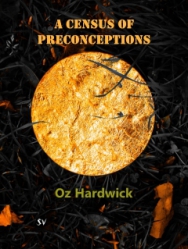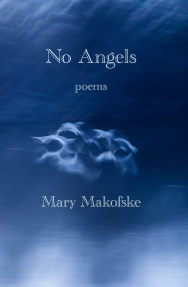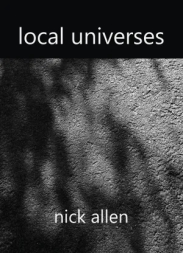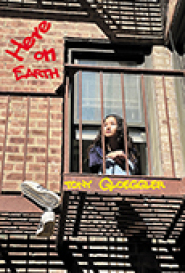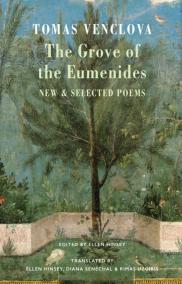
Oz Hardwick, A Census of Preconceptions, SurVision Books, 2022.
ISBN 978-1-912963-38-6. 75pp. £10.92.
Oz Hardwick is one of the most renowned contemporary exponents of the Prose poem; some of his previous prose collections have been reviewed by me in earlier issues of The Lake. This most recent, full-length collection, sees him going from strength to strength. In conversation, Hardwick describes himself as an ‘addicted writer’ , for which we can only be grateful, and his daily ritual of writing to make sense of the world around him feels like a ministry we desperately need, given the increasingly bleak and Kafka-esque world in which we survive, if not actually live.
That is not to say that all is explained or straight-forward. It is in the nature of prose poetry to resist simple narrative trajectories, and we will wait in vain for disambiguation. Ironically, the more surreal these poems become, the more engaging they are. Each of them is carefully patterned, driven by rhythmic energy, with repetitions, patterns and startling juxtapositions. What an extremely satisfying sentence is: ‘It’s a tasty night, a wasted night: a night to shimmy and shudder to the stuttering flutter of bone on slack catgut.’(‘Not Fade Away’). ‘Breaking News’ scaffolds iterations of ‘Against …, I have ….’ to create the conviction that ‘it’s fake news and, at the bottom of the screen, the true story’s already breaking.’ The iteration of ‘push between …’ (‘Highway Blues’) builds an edgy tension in which ‘proximity’, ‘gestures’ and ‘conversations’ are equally troubled.
These poems present us with both familiarity and confabulation; scratch beneath the skin and what we thought we understood becomes uncanny and surreal. References that graft the poems to particular locations, periods, patterns of behaviour undermine themselves almost as soon as they are voiced, qualified by subclauses and ‘buts’. Allusions ricochet off each other; we lurch from the clichés of tabloid horoscopes to the Bible in the closing lines of ‘Please make up my Room’.
It seems that Hardwick wants to be heard, rather than understood; and there is much mention of language and its limits in being able to communicate: ‘When she spoke, we didn’t understand a word (‘Rain Fugue’); ‘When I open books, the words slip into my lap like hourglass sand’ (‘The Ghost in the Touch’); ‘That’s the problem with verbs and their verifications; the vertiginous shifts of perspective as they flash from figurative to literal, and thence to littoral, littering the shore, unsure of their equivocal relationship to the real’ (‘Keep Calm and Carry A Reminder’). At times I was reminded of T S Eliot’s ‘Words strain,/Crack and sometimes break, under the burden…’, but there is something altogether more ludic and passionate in Hardwick’s verbal compulsions. In Hardwick’s hands, language is pushed to the limits of its endurance: ‘Just because they are in your handwriting doesn’t mean they are necessarily your words’ (‘Please make up my room’). The intrusive first person is mostly stripped out of these poems, yet they are intimate encounters.
Time and place recur as constant leitmotifs; is it exaggerating to say Hardwick is an Einstein of prose poetry, reconfiguring our understanding of time and space? He ‘ease(s) down the zip between now and never’ (‘Awayday’). To read these poems is to undergo a transformation; you will lift your head from the page and wonder where on earth you are, and wish there had been an enduring map to where you had been. The only remedy is to turn to page one, and start reading again.
Hannah Stone
To order this book click here
Hannah Stone is the author of Lodestone (Stairwell Books, 2016), Missing Miles (Indigo Dream Publishing, 2017), Swn y Morloi (Maytree Press, 2019) and several collaborations, including Fit to Bust with Pamela Scobie (Runcible Spoon, 2020). She convenes the poets/composers forum for Leeds Lieder, curates Nowt but Verse for Leeds Library, is poet-theologian in Virtual Residence for Leeds Church Institute and editor of the literary journal Dream Catcher. Contact her on hannahstone14@hotmail.com for readings, workshops or book purchases.
Mary Makofske, No Angel, Kelsay Books, 2023. ISBN: 978-1-63980-342-2 93pp. $20.00
Okay, I’ll just come out and say it: I don’t like long poems. I never have. You can blame my 6th grade teacher who forced us to read Evangeline. You can blame my 12th grade high school English teacher who forced us to read Beowulf. You can blame my college Medieval Lit professor who forced us to read Gawain and the Green Knight (2530 lines) and Piers Plowman (7300 lines). Yes, both! Although I admit it was an elective course, I did almost drop it. There’s plenty of blame to go around. And what a relief it was to discover Williams and Creeley and Roethke and Wright and Bly and Bishop and Lowell and Larkin and Yeats and all the Chinese and Japanese short form masters. Bless their souls.
But I do like “No Angels” – the title poem of award-winning poet Mary Makofske’s new book. A poem of nearly 300 lines based on the trial transcripts and newspaper articles of the killing of Michael Brown, an unarmed Black man, by police officer Darren Wilson in Ferguson, Missouri, on August 9, 2014, it held my attention as compellingly as a sonnet or a villanelle. And I like the other long poem in Part I of this three-part collection, “Matilda Lawrence,” perhaps even more. It tells the story of the escape, recapture, and ensuing court case involving a mulatto slave in the free-state of Ohio in 1837. Except for the first and last stanzas, it is told in the riveting first-person voice of Matilda herself, which Makofske so uncannily captures.
There is so much more to like here, too many wonderful poems to single out, but I have chosen “Nasreen’s Story” also from Part I to quote in full. It’s a masterful variation on the ghazal, the oldest poetic form still in use. It relies on a repeated word, which gives the form a hypnotic effect. The name imitates the sound of a dying wounded gazelle, and the form has roots in Arabic, Urdu, Hindi, and Hebrew. It is clear why it won first place in the Atlanta Review annual poetry contest, so I offer it to lure you into a complete and thorough appreciation for Makofske’s craft, her exquisite eye and ear for detail, and her deeply felt empathy for all things human.
Nasreen’s Story
In the converted barn we gather to hear Nasreen
tell her version of what Iraqis call “the collapse.”
Before, things were bad, very bad, but everyone knew
to keep quiet, be patient awaiting Saddam’s collapse.
She struggles with words to express her shock and awe,
watching her city’s buildings, bridges, lives, collapse.
But also jubilation, faith that the yoke of oppression
had lifted, Saddam’s statue yanked down, its collapse
reverberating through the land. Though soon her brother
was taken, tortured, returned only to collapse
in a corner, refusing to leave the house again. How to keep
teaching her students English, after the collapse
of hope? As she waited at the bus stop, a car pulled up, a bullet
ripped into the man beside her, whose collapse
she knew to ignore, staring straight ahead, grateful she
was not the one whose life bled out on the pavement. Collapse
time to this room, where we are safe but shaken, where someone
asks, What can we do? And again, the collapse
of hope when Nasreen says, ”You also are powerless in this collapse.
Your government decides what stands, what will collapse.”
Parts II and III are comprised mostly of lyric poems as opposed to the narrative poems of Part I. They range over a wide variety of subjects and emotions, from remembrances of the poet’s parents (“My Mother, Bathing,” “My Father Wanders”) to her grandchild (“Speechless”), from the dream-like world of nature (“The Owls Consider Their Kind”) to the nightmare world of post-nature (“After a Class Discussion of Cormac McCarthy’s The Road”).
“The Poems Are Vanishing” is the first poem of the book, but by the time we have read the last, “This One Life,” we are grateful that from the hands and heart and mind of Mary Makofske, we can say that the poems are back.
J. R. Solonche
To order this book click here
Nominated for the National Book Award and twice-nominated for the Pulitzer Prize, J.R. Solonche is the author of twenty-six books of poetry and co-author of another. He lives in the Hudson Valley.
Nick Allen, local universes,
Maytree Press, 2023.
ISBN 9-781913-5-8340. 34 pp. £8.00.
This slim volume is dedicated ‘for Dave, because we all fucking miss you, that’s why.’ We might therefore expect a mournful tone – and there is darkness here, as in Allen’s other work (I have in mind his ‘morphine|bone|dream’). However there is never a sense of wallowing or self-pity, more a sense of seriousness about the realities of life and death, and how in the best poetry, words can be worked really hard to convey this. One quirk I cannot quite get my head round (I have learned to accept the absence of upper case and punctuation in his work): why the use of ‘/’ in the middle of lines (for example in ‘hill fog’)? This is a device much used in the esoteric offerings published in The Poetry Review, where I also find myself wondering what it adds that a line break couldn’t.
To the reasons why I commend this volume so highly: the rawness of emotion is softened by consistent attention to detail and whilst deeply personal this poetry is never purely confessional; it moves beyond the ‘local’ to the ‘universal.’
In terms of local geography, there are many clues to Allen’s love of the ruggedness of the northern English landscapes (physical and metaphorical), with mention of a cormorant who
fish[es] the silence
out of the Aire;
he honours the ‘two poets’ of Heptonstall, and provides the location clue in ‘approaching twilight on the old metal footbridge near Hirst Lock’, a title which recalled for me Wordsworth’s ‘Composed upon Westminster Bridge.’ Like the Romantics, Allen’s poetry often contains an elegiac response to ‘nature’ – but he never loses the ‘edge’ of the contemporary. In this poem we get such a clear and witty image:
four herons and fifty gulls walk the length of a new ploughed field
as if it were a crime scene.
In the neatly evolving ‘heron in the rain’ we meet the bird ‘under branches’ where is it
a pensioner at a bus stop
waterproof shrugging off rain
standing at the bus stop.
But to focus on the key point of this collection; the poet’s memories of and shared life with his dead friend. The poems about this (and other deaths) are beautifully spaced throughout the collection, mirroring the way thoughts of the dead surface at intervals in the consciousness of the bereaved, sometimes prompted by particular places or incidents, and sometimes out of the blue. This is done with great subtlety; the juxtaposition of ‘ripple’ to ‘ripple II’ takes us effortlessly from the natural to the emotional world. The consistently understated expression of emotion betrays careful editing: the irregular spacing between phrases in ‘on stillness’ catch almost like a lump in the throat, but the words themselves are stripped bare:
I cant make
the knowledge sit alongside the disbelief you
were never still even when you were sat always
one more hill to climb one more tale to be told.’
The discretion and reined-in nature of emotion is striking, too, in ‘weight’, where Allen compares two occasions when we was asked to bear a coffin on his shoulders, and how
years later and my shoulders
are broader my back stronger
but in truth I still do not feel
that I am strong enough.
More than anything, despite its seriousness and depth, this is a collection filled with passion and love; of land, of people, and above all of the particular ‘local’ friendships we might all hope to have experienced:
looking down the valley at the path they have taken
They know that if all of this is not about love then it is about nothing
At all and they drink another round to the sheer gentle joy of it.
(another round)
Hannah Stone
To order this book click here
Hannah Stone is the author of Lodestone (Stairwell Books, 2016), Missing Miles (Indigo Dream Publishing, 2017), Swn y Morloi (Maytree Press, 2019) and several collaborations, including Fit to Bust with Pamela Scobie (Runcible Spoon, 2020). She convenes the poets/composers forum for Leeds Lieder, curates Nowt but Verse for Leeds Library, is poet-theologian in Virtual Residence for Leeds Church Institute and editor of the literary journal Dream Catcher. Contact her on hannahstone14@hotmail.com for readings, workshops or book purchases.
